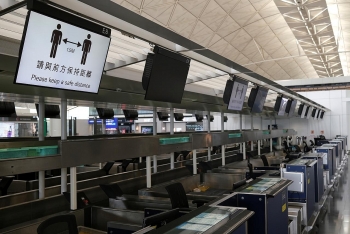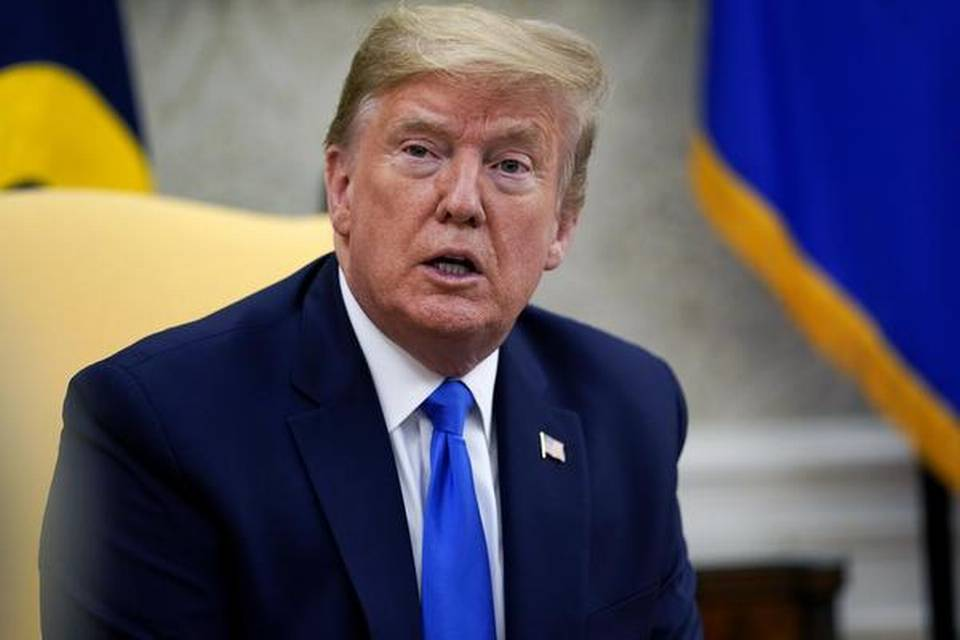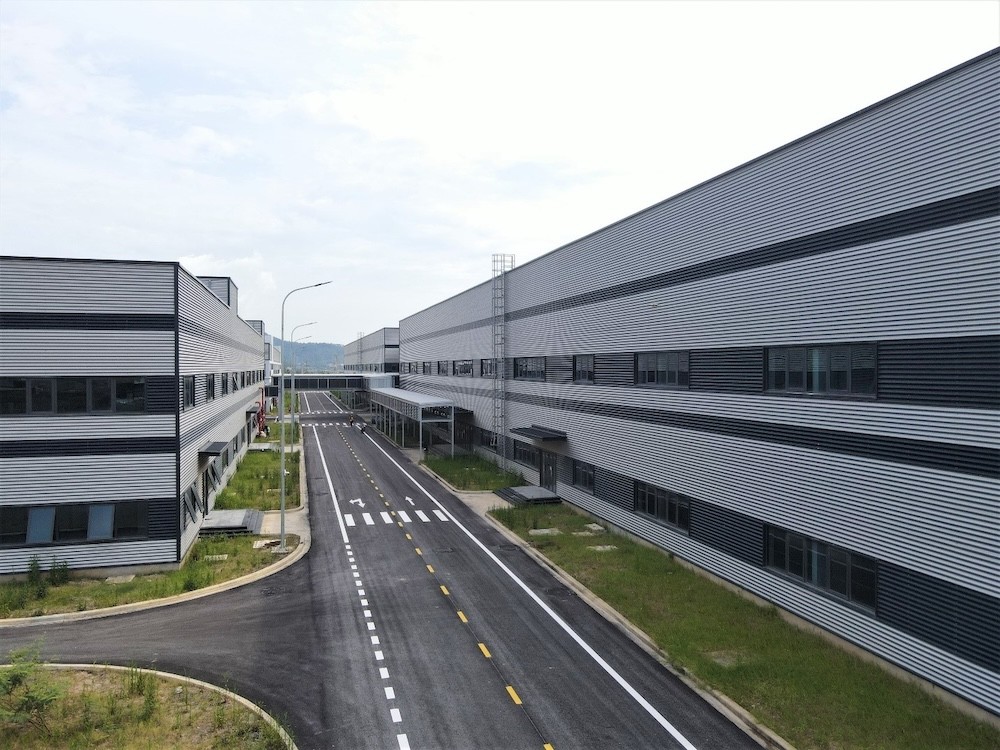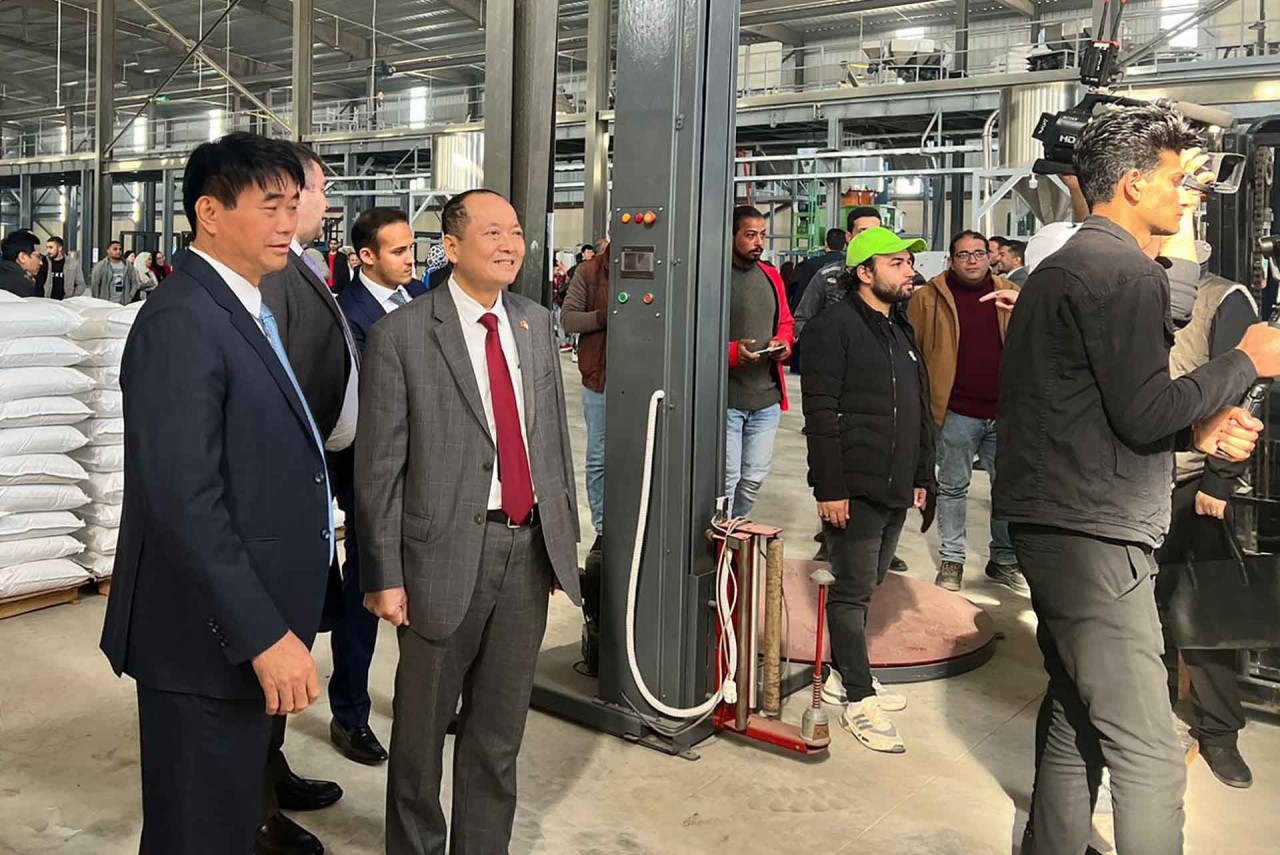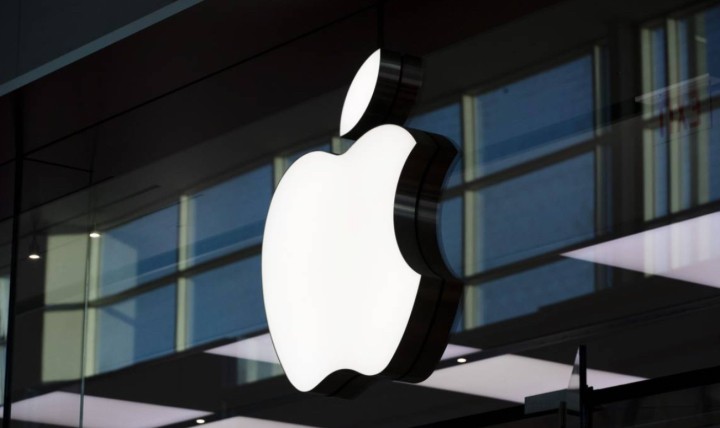China's days as 'the world's factory' is said to be over soon
 |
| Apple’s most prized product, the iPhone, can be made outside China if needed. Photo: illistration |
Hon Hai Precision Industry Co. Chairman Young Liu (owns the Foxconn brand) said it was gradually adding more capacity outside of China, the main base of production for gadgets from iPhones to Dell desktops and Nintendo Switches. The proportion outside the country is now at 30%, up from 25% last June. That ratio will rise as the company -- known also as Foxconn -- moves more manufacturing to Southeast Asia and other regions to avoid escalating tariffs on Chinese-made goods headed to U.S. markets, Liu told reporters after his company reported financial results.
“No matter if it’s India, Southeast Asia or the Americas, there will be a manufacturing ecosystem in each,” Liu told investors on a conference call, adding that while China will still play a key role in Foxconn’s manufacturing empire, the country’s “days as the world’s factory are done.” Foxconn said in a statement Thursday that, contrary to “inaccurate media reports,” management’s comments during the call did not refer to any specific companies, facilities or products, and were intended to reflect macroeconomic and industry trends.
Intensifyingtrade tensions between Washington and Beijing have pushed device manufacturers to diversify their production bases away from China, and Liu last year said that Apple’s most prized product, the iPhone, can be made outside China if needed. The two nations remain in trade talks, but Liu’s comments affirm a growing expectation that the China-centric electronics supply chain will fragment over the longer term.
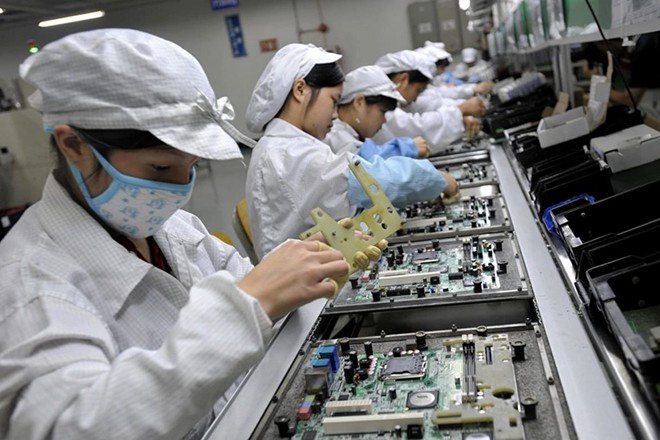 |
| The so-called "world factory" in China was no longer relevant PHOTO: AFP |
Foxconn has been shaking up its traditionally China-focused operations. Hon Hai is among Apple assembly partners that plan to expand operations in India, potentially helping the iPhone maker grow its presence in the country of 1.3 billion and shift some of the U.S. company’s supply chain outside of China as ties between Washington and Beijing fray.
Chinese rivals are also posing a growing challenge. Local electronics titan Luxshare Precision Industry Co. is poised to become the first Chinese homegrown iPhone assembler after sealing a deal in July to buy an Apple handset production plant from Wistron Corp. While Hon Hai will keep assembly orders for premium iPhones, Luxshare will eat into the business for mid-to-entry-level Apple handsets, Fubon Securities analyst Arthur Liao wrote in a July 23 note.
Foxconn will work on its component business to maintain tech leadership and it also benefits from its long-term relationship with Apple, Liu said in response to several analysts’ questions about Foxconn’s competitive strategy against the rising Chinese supplier, according to the business-standard.
Orders could be further affected after President Donald Trump issued an executive order barring U.S. residents from doing business with Tencent Holdings Ltd.’s WeChat. Annual iPhone shipments could plunge 25 per cent-30 per cent if Apple is forced to remove the app from its app stores worldwide, TF International Securities analyst Kuo Ming-chi warned in an August 9 note.
Can India replace China as world's factory?
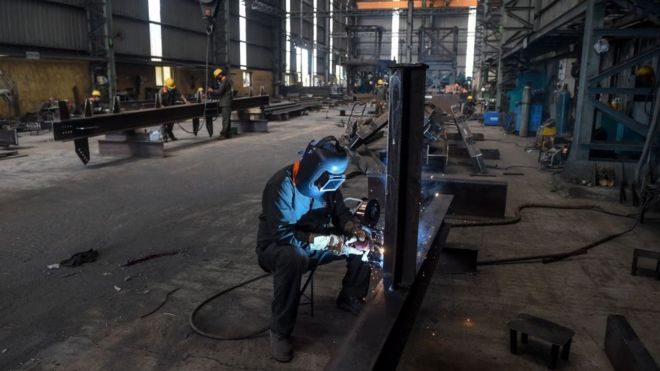 |
| India feels China's weakened global position could be a "blessing in disguise". Getty image on BBC |
Its neighbour India has sensed an opportunity and is keen to make inroads to a space it hopes China will vacate sooner rather than later.
China's weakened global position is a "blessing in disguise" for India to attract more investment, transport minister Nitin Gadkari said in a recent interview. The northern state of Uttar Pradesh, which has a population the size of Brazil, is already forming an economic task force to attract firms keen to ditch China.
India is also readying a pool of land twice the size of Luxembourg to offer companies that want to move manufacturing out of China, and has reached out to 1,000 American multinationals, Bloomberg reported.
In an environment where global balance sheets are fractured, relocating entire supply chains is easier said than done.
"Many of these companies are facing severe cash and capital constraints because of the pandemic, and will therefore be very cautious before making quick moves," independent economist Rupa Subramanya said.
According to Rahul Jacob, a long-time China watcher and former Financial Times bureau chief in Hong Kong, the Indian government putting together land banks is a step in the right direction, but large companies are unlikely to move their operations just because land is made available.
"Production lines and supply chains are far more sticky than most people seem to understand. It is very difficult to pull them apart overnight," he said.
"China offers integrated infrastructure like large ports and highways, top quality labour and sophisticated logistics, all of which are critical factors to meet strict deadlines that international companies operate on."
Another reason India might not be the obvious choice for global multinationals is because it isn't well integrated with major global supply chains, the BBC reported.
Which Asian Country Will Replace China as the ‘World’s Factory’?
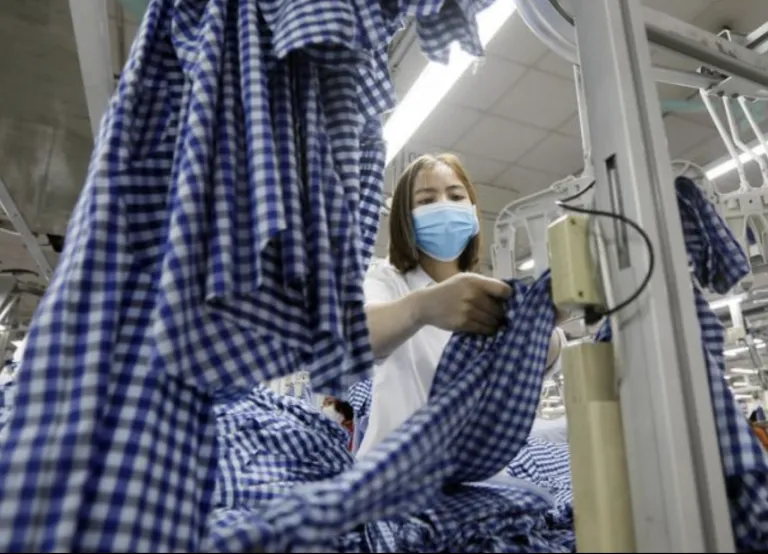 |
| A Vietnamese worker toils in a garment factory in a file photo. Photo: AFP |
China’s transition is opening space for other countries to move into low-cost manufacturing, where China until recently dominated. Deloitte predicts that the economies of Malaysia, India, Thailand, Indonesia, and Vietnam, the “Mighty Five” or MITI-V, will inherit China’s crown for such products. The consensus among industry and regional experts interviewed for this article is that India in particular will be the next top hub for low-cost manufacturing.
A senior engineer at BSH Hausgeräte GmbH, the largest home appliances manufacturer in Europe and a major investor across Asia, who works closely with low-cost Chinese manufacturers, also agrees: “India is the future. Infrastructure is not so good but they have so many people,” he says. However, he has also seen Chinese companies moving into Vietnam due to its very stable political environment. Indeed, Malaysia, Indonesia, Thailand, and Vietnam all have their own benefits and some similarities with India, said thedipomat.
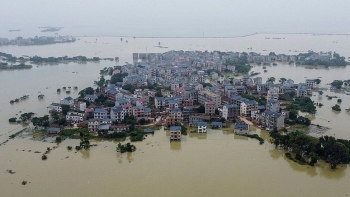 | Serious Flood And Its Negative Impacts On China’s Economy Had it not been for the last month's flood, Bao Wentao's family would have harvested the crop worths $28,000 and prepared to plant a new ... |
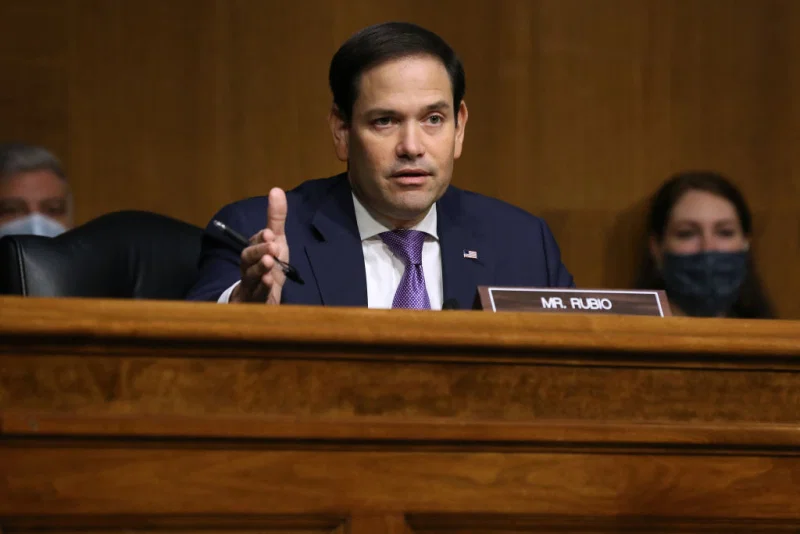 | China imposes sanctions on 11 US officials over Hong Kong related tensions China imposed sanctions on Rubio, Cruz, and other US citizens including legislators on Monday over the US's moves towards Hong Kong. |
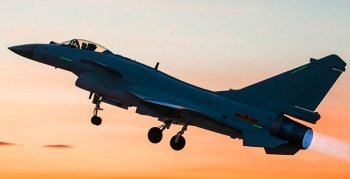 | Beijing deploys fighter jets as highest-level US official visits Taiwan Chinese fighter jets crossed over the median line of the Taiwan Strait and into the country's airspace in Aug 10 morning, one day after U.S. ... |
Recommended
 World
World
India reports 9 Pakistani Aircraft Destroyed In Operation Sindoor Strikes
 World
World
Thailand Positions Itself As a Global Wellness Destination
 World
World
Indonesia Accelerates Procedures to Join OECD
 World
World
South Korea elects Lee Jae-myung president
Popular article
 World
World
22nd Shangri-La Dialogue: Japan, Philippines boost defence cooperation
 World
World
Pakistan NCRC report explores emerging child rights issues
 World
World
"India has right to defend herself against terror," says German Foreign Minister, endorses Op Sindoor
 World
World


